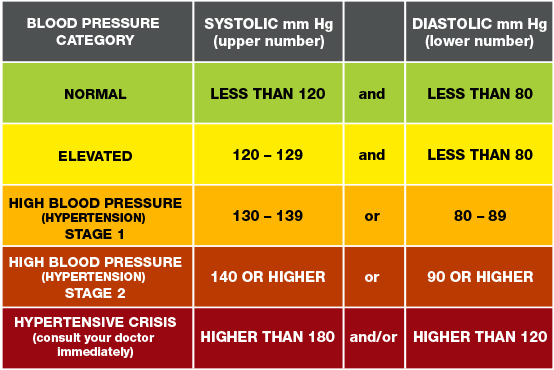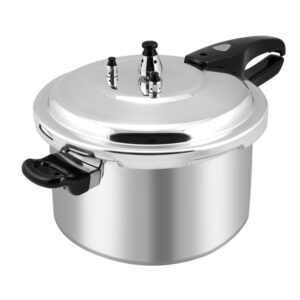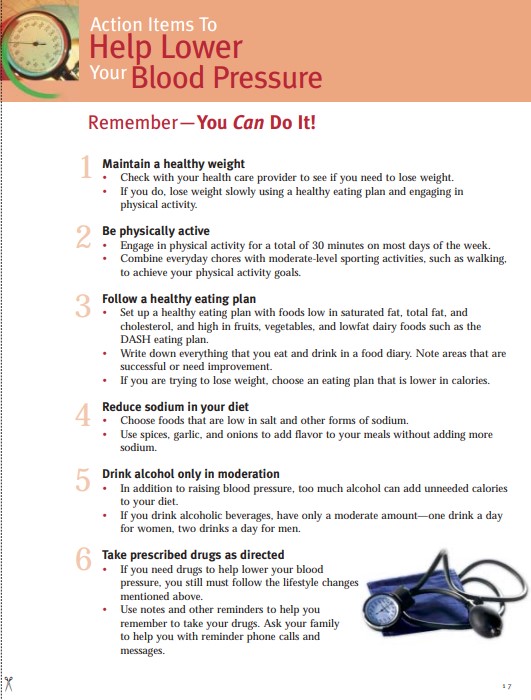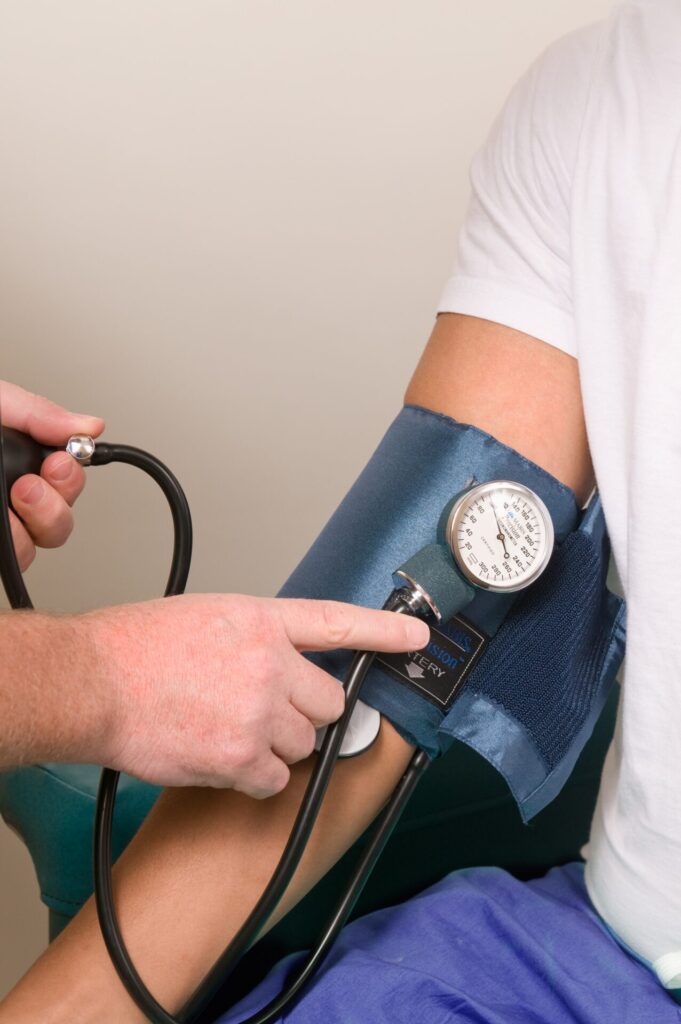As a fledgling nursing student, one of the purchases I made that I was really excited about was a manual blood pressure cuff (aka Sphygmomanometer, in case you want to sound smart and incredibly pretentious in conversation!). To my shame… I may have swaggered a bit when I brought it to church with me to practice on my peers. I remember bringing that cuff and my stethoscope everywhere, like a kid with a teddy bear. But here’s the thing; I hadn’t quite gotten far enough into my training and learning to be able to explain to the people I was performing blood pressure measurements on as to why we do blood pressure readings.
The rest of this blog entry is going to go into what a blood pressure means and why it’s important. Now… why is this an important topic?
Heart disease and stroke continues to be top health concerns in the U.S. (take a look here). Blood pressure is a relatively reliable, minimally invasive way to assess someone’s baseline health. An elevated blood pressure found early on might be able to tell a clinician if any interventions are necessary to help prevent conditions like heart disease and stroke.
Unless you actually have one of the conditions that is considered a heart disease, or have actually suffered a stroke, it’s hard to explain how constant or tiring it can be to live with it. I think most people think of, say, a heart attack or stroke being sudden, unpredictable, and inescapable. Of course, there are absolutely cases where no warning was forthcoming, and honestly nothing could have changed the outcome. But if you’re reading this blog, you might be in a place where you’re trying to be healthier. If we are tying together our a sense of our own physical health with the whole, full selves we know that God wants us to embody, the main question is, how can we do this better? How can we live this life in order use it to worship God at our fullest capacity?
And so, dear brothers and sisters, I plead with you to give your bodies to God because of all he has done for you. Let them be a living and holy sacrifice - the kind he will find acceptable. This is truly the way to worship him.
Romans 12:1
This particular verse speaks to the bringing together of physical bodies and worship. Of course, it’s not specifically saying “control your blood pressure for the glory of God!” But it does speak to what we use our bodies for and how we should think about them in order to present them to God as acceptable vessels for worship. If we are to use our bodies and present them to God as a living sacrifice, how can we steward and care for them in such a way to maximize their purpose, which is worship (which also includes enjoying what our bodies can do!)? Blood pressure is just one of many practical ways of tracking what is going on with our bodies and how we can steward them well in order to maximize our capacity for worship.
So, let’s get started!
What is blood pressure?
So, when you go to your doctor’s office and they tell you your blood pressure, they give you two numbers: your Systolic (the first or top number), and your Diastolic (the second or bottom number) blood pressure. Basically, they measure the pressure that your blood puts on your arteries (the blood moving highways of your body) when your heart beats (systolic) and when it’s at rest (diastolic). (See the American Heart Association website here for a more detailed explanation)
Why do we use it as a measurement of health?
It’s a relatively simple and noninvasive way to assess your risk for cardiovascular related issues. There are definitely more ways to do so, but it doesn’t involved drawing blood, which involves a needle prick, and it’s relatively painless (although I’ve had more than one patient complain about how tight those cuffs get!).
What is a healthy blood pressure?

This is a great graphic on blood pressures and their associated categories taken from the American Heart Association (AHA) Website. Everyone is a little different, but this is a good general way of gauging your heart health.
What affects my blood pressure? And what does my blood pressure affect?
TOO MANY THING! or at least, that’s what it feels like sometimes! And the list of negative things feels so long, it’s actually pretty easy to zone out after the first few. Honestly, the list sometimes makes it harder to start, either out of fear, anxiety, or overwhelm.
So let’s do some imagery instead.

If we’re talking about what causes high blood pressure and what it can do to your system, let’s imagine a pressure cooker. Pressure cookers require a certain level of sturdiness and integrity in order not to explode or leak with too much pressure. When they are working as expected, the seals are intact, and the materials are good, great! But imagine that something happens to the material of the pressure cooker (rust forms where you don’t see it, someone dents the lip of the pot, the pressure regulator breaks off, etc.). Imagine that for some reason, there’s no way to release that pressure. When you turn it all on, increasing the heat, with compromised materials and no way to release that pressure, eventually, the area of weakness will cause a leak or a major explosion. The way the materials are treated (so forces outside of that pressure cooker) affect its integrity, while, at the same time, the pressure in the pressure cooker exerts force on the materials, also potentially affecting its integrity.
Your body has a system that carries oxygen, nutrients, and all manner of basic materials your body needs to function called the Circulatory system, which includes your blood vessels and your heart. That system works optimally when its solid enough to maintain a certain level of pressure, yet flexible enough not to be compromised by controlled changes caused by the environment There are a myriad of ways you can affect this system; diet, exercise, electrolytes, medications, etc. And any kinks in the system can negatively affect not only that system but everything that that system feeds, like your brain, organs, and muscles. For our purposes, we will focus specifically on things that we can control, the things that we are able to use to affect our blood pressure.
Before I go any further, if you are someone with high blood pressure and/or you’ve been taking blood pressure medications to control it, and you are looking to try to bring this number to a healthier level, the first person you need to talk to is your primary care provider (PCP). This can include an MD (medical doctor), a DO (doctor of osteopathy), nurse practitioner or advanced practice nurse, or physician assistant. A good PCP will be able to make sure you’re not putting undue stress on your body, which can cause more harm, and help you create a plan over the course of time to make sure you’re doing this safely. They will also take a baseline blood pressure and help you track it.
If you look at the AHA website, along with almost every other health website out there, the main recommendation regarding getting control of your blood pressure is a healthy lifestyle. That means things like diet, exercise, and lifestyle changes like stopping (or at least diminishing) tobacco use or alcohol intake.
Rather than go into each of these in too much detail (because there are so many different diets, types of exercise, and things you could try), I decided to see if there is a good guide already written out there for anyone wanting to get their blood pressure under control and want something not too overwhelming. I landed on the National Institute of Health (NIH) website, and found this pamphlet:
https://www.nhlbi.nih.gov/files/docs/public/heart/hbp_low.pdf
Entitled “Your Guide to Lowering Blood Pressure,” it has a good and detailed overall guide on how to get your blood pressure under control.
The NIH uses the DASH diet (LITERALLY “Dietary Approaches to Stop Hypertension) to approach controlling blood pressure. The reason I like this so much isn’t necessarily because I think the DASH diet is the best diet in all the world. It’s because I know I’m busy, you’re probably busy, and it’s nice that someone out there has already done some research into the topic, and having a starting point is nicer than having to start from scratch. And rather than relying on trends, the DASH diet has been researched and utilized regularly enough to show that it can work to bring down blood pressure, as well as reduce other health related risk factors (see here). It encourages a good amount of vegetables, fruit, and whole grains, rather than things like processed food or foods high in sugar.

This page is a helpful one because it breaks down everything into small, readable chunk. It’s easy to get overwhelmed with too much information. And rather than tackling it all at once, taking things one at a time and making realistic, measurable goals will help more effectively in the long run.
We’re also not looking to reach an optimal blood pressure, then go back on all of the healthy lifestyle changes that were made. Rather, it’s important to maintain that healthy lifestyle, not just for the sake of satisfying a goal or making ourselves feel good or even to feel happier with what we see in the mirror. We do this in order to steward our bodies and offer them up as “living sacrifices”, ones that we have taken care of well as resources he’s given us to use wisely.
So, equipped with this educational material, a visit with your PCP, and a basic understanding of what blood pressure is and why it’s important, the last thing we need is something that actually measures your blood pressure! Now, if you’re being seen by your doctor regularly, you can just wait between appointments, but time might make it hard to check in often or see your progress over time. You may also find an automatic blood pressure cuff at your local grocery store or pharmacy. If you’re looking for maximum convenience, and have the funds for it, you can also find relatively affordable and small blood pressure cuffs at your local pharmacy or online. I did recently get one for myself, but because I don’t know if I would recommend it for anyone else, I won’t put it up here. (It also talks to me, it’s a little loud, it has terrible grammar, and I’m sure there are better products out there to plug.)
There are a few different kinds; wrist, arm, electronic, manual. If this is the way you want to go, my go-to for different electronic products is usually websites like Consumer Reports or even just doing a quick online search on whatever search engine works for you. Do some research so that you know the product you’re getting is accurate. Also, try to make sure it fits your arm size before you hit “purchase”!
Lastly, if you’re looking to track how you’re doing over time, make sure to check your blood pressure at around the same time every day and either write it down or find some other way to track it. Don’t expect this to change in the course of a week or two! The main thing is to make realistic lifestyle changes that you can do as consistently as possible (giving yourself some room for grace!). If you’re finding that after making changes, you’re still not seeing results after a few months, talk to your PCP to see if they can help guide your decision making and if any other workups are needed.
That’s it! I’m sure there’s so much more to go through, so… check out my new instagram account! Still working on building it up, but it’s at @yourchurchnurse! I’m still trying to get the hang of it, so forgive me if I don’t post very often. If you have any questions or experiences of your own to share, leave a comment down below or send me a message!


I was suggested this blokg by my cousin. I’m not sure whether
this post is written by him as no one else know such detailed about my trouble.
You are incredible! Thanks! https://lvivforum.pp.ua/
https://continent-telecom.com/virtual-number-uk
https://winnita-promocode.com/